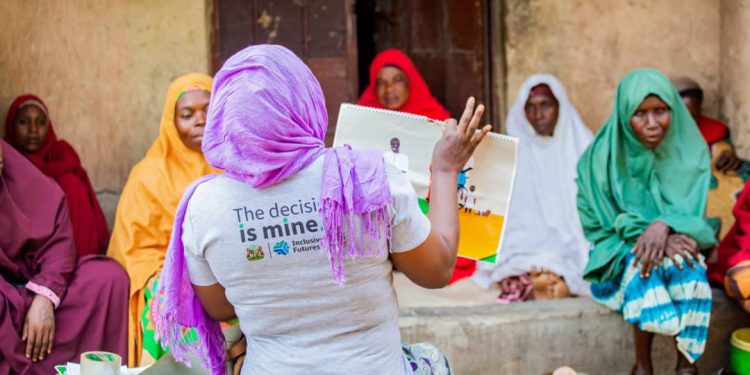In yet another move that aligns with its vision for a world where people with disabilities participate equally in society, Sightsavers, working together with the International Disability Alliance (IDA) under the Inclusive Futures consortium, has released a report to help development projects around the world be more inclusive and beneficial for people with disabilities.
According to a press release from Sightsavers made available to BONews, the report titled: “Driving change: six principles for inclusive development” features six game-changing principles that put experiences and theories into action, and aim to transform the lives of millions of people with disabilities.
Dr Joy Shu’aibu, country director for Sightsavers Nigeria says:
“By adopting these six principles in your work, you could help change the lives of millions of people with disabilities. If not, many will continually be trapped in poverty,”. “To drive the required change at the scale needed to reach up to 16% of the world’s population, we now need professionals working across the global development sector to put what we’ve learned into practice.”

The six principles outlined in the report cover a range of challenges and issues including how to challenge negative stereotyping and stigma, ensuring availability of accurate, context-specific data to inform all works, as well as making sure people with disabilities are involved in, and influence projects at every stage. They are:
Be ambitious – build inclusion into every phase. If it’s not working – change it! Shatter stereotypes and break down barriers. Collect precise data and track your spending. Capture changes and tell your story. Don’t try to do it alone – form partnerships.
Commenting on the principles, Hamidat Ajibola, adolescent outreach officer at Women with Disabilities Self-Reliance Foundation, an organisation working with Sightsavers on a project supporting women with disabilities to access family planning services in northern Nigeria said:
“I believe these principles are essential for truly inclusive and impactful development work for organisations of persons with disabilities like ours. These principles provide a valuable framework to guide our efforts and ensure the voices of women, adolescent girls, and children with disabilities are front and centre of our initiatives.”
In Nigeria, the Inclusive Futures consortium (a flagship disability inclusive development initiative funded by multiple donors, including UK Aid and USAID) has been working alongside local Organisations of Persons with Disabilities (OPDs) and communities to put these principles into practice.
The press release reads in part:
“Between 2019 and 2023, the Inclusive Futures consortium, made up of 20 development and disability rights organisations has implemented 12 projects in Bangladesh, Kenya, Nepal, Nigeria, and Tanzania. The initiative generates robust evidence about how to include people with disabilities in development and humanitarian programmes, and played a crucial role in supporting some of the most marginalised communities during the COVID-19 pandemic – reaching over 60,000 people in the aforementioned countries with aid.”
The consortium was able to formulate these six key principles by gathering evidence on what succeeds, what falls short, and the underlying reasons – to create inclusive development programmes that transforms the way the development sector approaches disability inclusion. This is possible through lessons learned from extensive on-the-ground experience.
With the International Day of Persons with Disabilities coming up on 3 December, the ‘Driving Change’ report comes at a critical time, as the global development sector works to fulfil the mandates of the UN Convention on the Rights of Persons with Disabilities and the Sustainable Development Goals which explicitly recognise the importance of disability inclusion although significant barriers to equal participation for people with disabilities persist worldwide.

